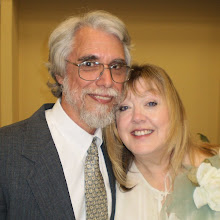Love says love your neighbor as yourself. Or, do unto others as you would like them to do to you.
Because we are the same.
How do I know what my neighbor wants from me? He or she is like me. And so I know. My neighbor's inner person is known to me, in a very real sense, because his or her inner person is like mine and I know (to some degree) what is inside me. So I adjust my behavior accordingly.
But there are some glitches. One is that I might not know my innards as well as I think I do. If I am prone to self-hatred I will quite naturally neglect the inspection of my inner person and so I will not know myself as well as I might (or at all), with the result that I do not have a clear idea of the other's innards either.
Another glitch is that I might believe that my neighbor and I are different in some fundamental way. I might consider myself to be a part of a group which is better (or worse) than the group my neighbor is in. Or I might consider myself to be a "party of one," supposing everyone else to be different from me. In either case my neighbor and I are exluded from one another.
Another common divider: I might base my notion that we are fundamentally different on behaviors I feel are mutually exclusive, like crimes or anti-social behavior. You and I could be on opposite sides of the law, one of us a law-abiding citizen and the other a law-breaking denizen. Another word for this attitude is judgment. To judge is to exclude the other—to reckon that we are different or incompatible. We then think we have good reason to withhold our love and respect from those others.
This cuts us off from the very life of love we wanted to have.
skip to main |
skip to sidebar
A universal resource. Free and freely available to every race, culture
and language group in every place and at all times.
What is Love?
A universal, self-validating standard for life and living. The greatest commandment. All we need, all we want. The destination, the journey and the vehicle we travel in.
What is Open Source?
A system of software (and other) development in a non-proprietary environment—source-code is freely available for inspection and improvement. Open source tradition fosters cooperation in a way never seen before in the world of technology.
What is Open Source Love?
A parable, a metaphor, an inside joke? All these and more.
If you have something to add, add it. If it is something big let me know.
More about Open Source Love.
More about Open Source Love.
Some of my Favorite Books
Friends and Friends of Friends
From my other blog
About Me
Blog Archive
-
▼
2007
(22)
-
▼
February
(13)
- Love and Law
- Surprise! You are Loved
- Faith, the Proper Response to Love
- When Does Love Stop Loving?
- Agape and Eros: Mortal Enemies — or not?
- Love is Everything
- Love is First
- Cold Hard Love?
- The Dark Side
- As Yourself
- Love the One You're With - Revisited
- Love, the Kernel of Natural Law
- An Open Source Operating System for Humanity
-
▼
February
(13)

No comments:
Post a Comment